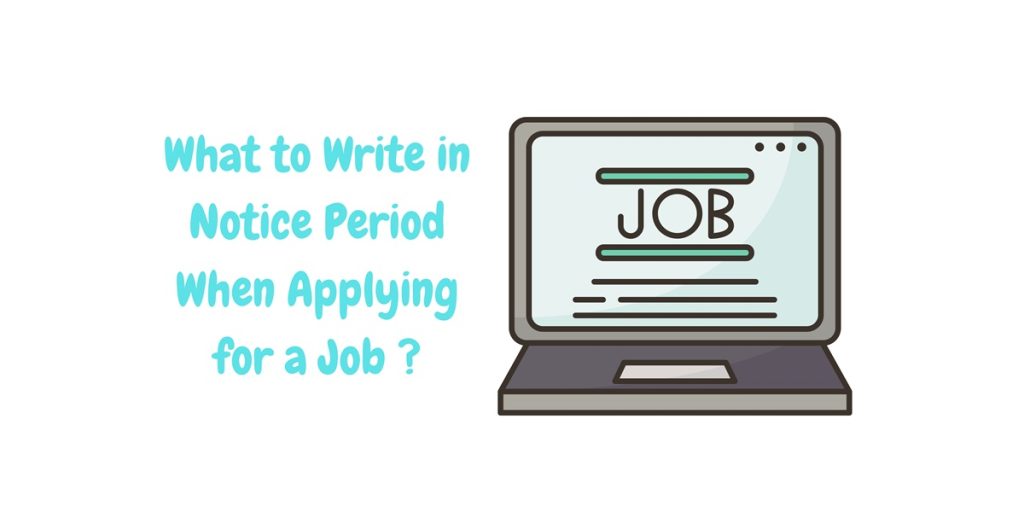When applying for a new job, one crucial aspect that often needs to be addressed is what to write in notice period. This period refers to the time you must give your current employer before leaving your position. Crafting a clear and professional response about your notice period can significantly impact your job application process. In this blog, we will explore the details of what to write in notice period when applying for a job, its meaning, and how to address it effectively.
What is Notice Period When Applying for a Job?
What is notice period when applying for a job? This refers to the duration between informing your current employer of your intention to leave and your actual departure. It’s important to understand how to communicate this period when applying for a new job to avoid any misunderstandings.
Official Notice Period
The official notice period is typically defined by your current employment contract. It is the amount of time you are required to stay in your current job after resigning. Common notice periods range from two weeks to three months, depending on the company and your position.
Real-Life Example
- Corporate Sector: An employee in a corporate role might have a notice period of one month. When applying for a new job, they should indicate this to ensure a smooth transition.
- Retail Industry: A retail worker might have a notice period of two weeks. Clearly stating this can help potential employers understand when you can start.
What is Your Notice Period?
What is your notice period? When asked this question in a job application or interview, it’s crucial to provide an honest and precise answer. This information helps prospective employers gauge your availability and plan accordingly.
Meaning of Notice Period
The meaning of notice period is the advance time you need to give your current employer before leaving your job. It allows your employer to make necessary arrangements, such as finding a replacement or transitioning your responsibilities.
Real-Life Example
- Managerial Role: A manager might have a notice period of three months, allowing their team adequate time to adjust and prepare for the transition.
Is Your Notice Period Negotiable?
A common question that arises is is your notice period negotiable. In some cases, you might be able to negotiate a shorter notice period with your current employer, especially if they can accommodate an early departure.
Notice Period Meaning When Applying for a Job
When discussing notice period meaning when applying for a job, you’re essentially explaining how long you need to fulfill your current obligations before starting a new role. Being clear about this helps avoid conflicts and ensures both your current and future employers can plan effectively.
Table: How to Address Notice Period in Job Applications
| Situation | How to Address Notice Period |
|---|---|
| Standard Notice Period | Clearly state the duration (e.g., “One month notice period”). |
| Negotiable Notice Period | Mention that it might be negotiable and offer to discuss it further. |
| Immediate Availability | If applicable, explain why you can start immediately and any conditions. |
What to Write in Notice Period When Applying for a Job
When addressing what to write in notice period when applying for a job, consider the following tips:
- Be Honest: Clearly state your notice period as outlined in your contract.
- Be Specific: Include exact dates if possible to avoid ambiguity.
- Be Flexible: If applicable, mention if there is room for negotiation.
Internal Link Opportunity
If you’re exploring job opportunities where the notice period might impact your start date, you might be interested in checking out the Highest Paying Jobs in IT. Many IT roles have varying notice period requirements, and understanding these can help in making informed decisions.
Conclusion
Understanding what to write in notice period when applying for a job is crucial for a smooth job transition. By clearly stating your notice period, being open about negotiations, and understanding its meaning, you can handle job applications professionally and efficiently. Ensuring clarity about your availability helps both your current and future employers plan effectively.
What to write in notice period is more than just a detail—it’s a crucial element of your job transition that requires careful consideration and communication.

